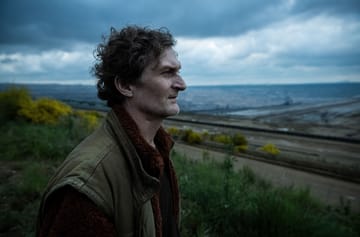“Abbruch Kante” with Ballauf and Schenk brilliantly implements current topics and proves that a good “crime scene” not only has to answer the question: Who was it?
Sunday’s crime series seems to be going well. While the “Polizeiruf 110” from Magdeburg was able to convince recently, the new “Tatort” from Cologne also manages to inspire.
The thriller about the chief inspectors Max Ballauf (played by Klaus J. Behrendt) and Freddy Schenk (played by Dietmar Bär) is red hot, depressing and impressive and leaves its viewers sad, thoughtful and relieved at the same time.
Parallels to Lützerath
“Abbruch Kante” was about a village called Bützenich. The place on the outskirts of Cologne is to give way to open-cast mining, destroying the lives of some long-established villagers in the process. Some of them really want to stay, others sell their houses and try their luck in a new place. For example the Schnitzler couple. They don’t find a connection in their new homeland. They called Bützenich their home for too long, can’t start again in old age and ultimately lose their will to live. A joint suicide goes wrong. The effects are tragic.
The parallels to Lützerath are obvious. The energy supply group RWE had the hamlet completely demolished at the beginning of the year. The resettlement took about 16 years. Then in January it was all over. At the time, the images of the embattled coal town touched the whole of Germany.
The “crime scene” manages to tie in with the real events and transport them to an emotional level. He manages to filter out individual fates from the big picture and makes the extent of such a decision clear.
In “Abbruch Kante”, however, things don’t happen like they do in real life. The place can remain, but will not be excavated, as the residents had feared. By then, however, too much had been destroyed. Not just on the outside. Families were torn apart, neighbors divided, a community made enemies.
In the midst of this scenario, the investigation into the murder of the village doctor, Dr. Franz instead. Several villagers had a motive, the doctor, it seems, was not a good person. The team of screenwriters, consisting of the married couple Eva Zahn and Volker A. Zahn, creates a gloomy picture of a community that has been broken by the external circumstances, by the “corporate” as it is simply called over and over again.
None of the characters seem artificial, no character misplaced, no actor, no actress miscast. A perfectly staged crime thriller that remains exciting, although the perpetrators can already be guessed towards the middle of the story.
Social problem Causa climate adhesive
The fate of Konrad Baumann could not be more relevant. He lost his daughter. The climate protector fell off a bridge and could not be rescued in time because of the barricades that the activists had set up beforehand. Here, too, the parallels to reality are unavoidable and it is multi-layered. Allowing the climate activist to become a victim of her own protests and portraying the drama from the grieving father’s point of view is terrific.
The final twist, that the daughter could have been saved if the village doctor had treated her, is as heartbreaking as it is tragic. The village doctor doesn’t save Konrad Baumann’s daughter because “he doesn’t like the forest squatters”. He literally digs his own grave and has affected the lives of four people in such a way that they end up wanting him dead.
And the “crime scene” manages once again to outline a multi-faceted social rift that is not only topical, but also extremely dangerous.

